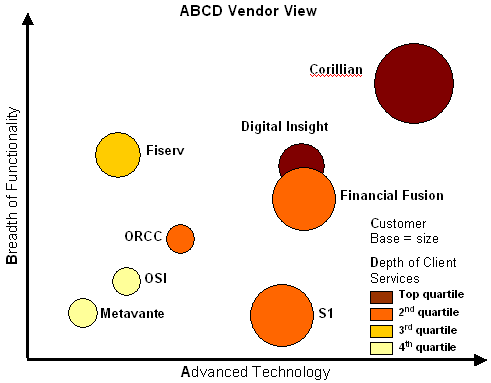San Francisco, CA, USA January 17, 2007
Globalization, syndication, and trading of loans, three major trends, allow banks to offer larger loans that large clients demand, but many banks require new technology to do so.
A sea change is occurring in the global lending landscape with the United States at the forefront, Europe following closely, and Japan adopting global practices quite quickly. Banks outside the top ten in the US are under pressure to compete with syndicated, multicurrency, and other loans. This has implications for the technology required to manage these loans. Some banks may not have the technology necessary to benefit from advances in commercial lending and will need either a massive overhaul of their commercial lending systems or a second system to handle these more exotic loans.
Technology vendors have been quick to respond to the changing commercial lending market. Syndication is becoming a requirement as the syndicated loan market grows and second tier banks find that they must offer syndicated loans to compete with top tier banks. In response, lending solution providers have been evolving to meet those needs with ASP models and solutions that run on less costly platforms.
The vendors break down into three sets:
- International best of breed systems: ACBS and Loan IQ
- US domestic best of breed systems: AFS and Shaw
- Commercial lending modules from mature universal banking systems: FLEXCUBE and T24
Celent has used its ABCD Analysis to examine these solutions and rank them on: Advanced Technology, Breadth of Functionality (front to back), Customer Base, and Depth of Functionality (features).

AFS Vision leads in depth of functionality, but has yet to be deployed. ACBS and LoanIQ are the top systems that are installed across the world. T24 has a large customer base due to its wide deployment as both an international branch solution and a stand-alone solution. FLEXCUBE is investing in more functionality through both acquisition and internal development. Shaw has chosen to stay in the US domestic market.
According to Bart Narter, author of the report and senior analyst in the banking group at Celent, "Globalization is a phenomenon that is permeating the business world. Banks that can’t support their customers as they move overseas will find that they are creating opportunities for a competitor to enter the account."
The report is 60 pages long and includes 23 figures and 15 tables. A table of contents is available online. Members of Celent's Wholesale Banking research services can download the report electronically by clicking on the icon to the left. Non-members should contact info@celent.com for more information.




